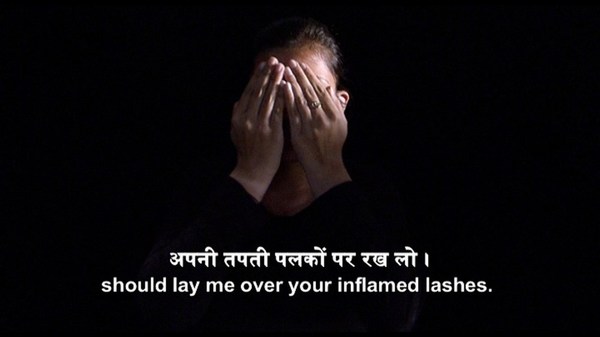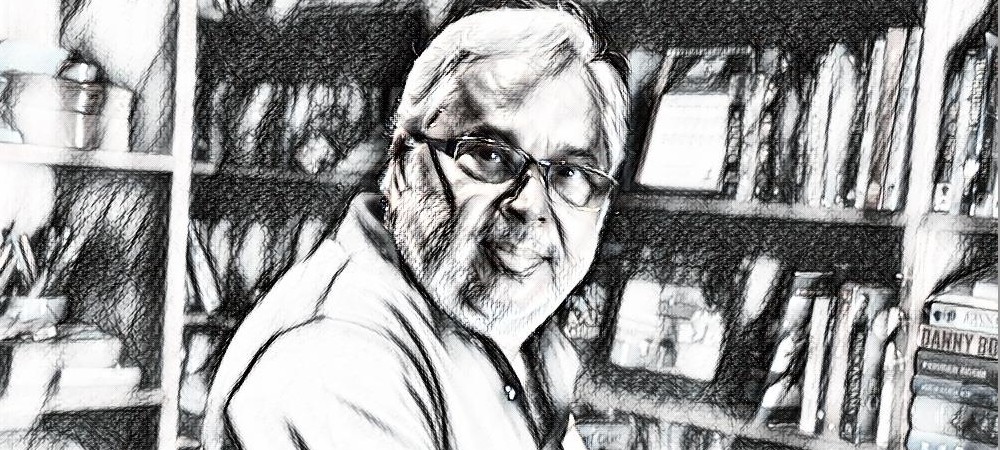Mindscapes Of ...Love And Longing a review by Dr Sunil Deepak
By Sunil Deepak, 10 December 2011
Arun's film "Mindscapes of love and longing" (2011) produced by PSBT had won the India's National Award 2012 for best film on social issues from the Government of India.
"Why don't you make a film on the issue of disability and sexuality?", I had asked Arun while we were out on a walk. After so many years, Arun has finally answered my question with his new film - "Mindscapes of love and longing".
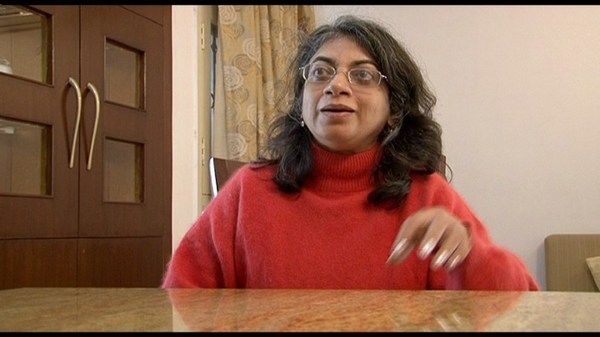 I had
done my thesis on this subject and felt really passionate about it. I think that disability is a taboo area,
something to be hidden and forgotten, pretending that it is not there. Sexuality is another taboo area. Though it is
one of the most fundamental part of our lives, we hardly ever talk about it. Joining together the two taboo issues,
disability and sexuality, means even greater taboo. Some thing to be hidden behind closed doors and closed
minds. Acting as if the issue does not exist.
I had
done my thesis on this subject and felt really passionate about it. I think that disability is a taboo area,
something to be hidden and forgotten, pretending that it is not there. Sexuality is another taboo area. Though it is
one of the most fundamental part of our lives, we hardly ever talk about it. Joining together the two taboo issues,
disability and sexuality, means even greater taboo. Some thing to be hidden behind closed doors and closed
minds. Acting as if the issue does not exist.
While Arun was making it, I knew that he was working on a film about disability and sexuality, but I had no other information about it. Thus when I finally had the opportunity to watch the film, I was not sure about what to expect.
After seeing it, I think that it is beautiful film and should be seen widely. That is because I feel that the film is not just about issues related to persons with disabilities. It also has so much for all of us, as human beings, as men, as women, as mothers and fathers, as siblings and as friends, to think about and to reflect upon.
The film - Mindscapes of love and longing
The film has five stories, starting with that of an adolescent girl Trisha Khandelwal. Like all adolescents, Trisha has crushes, she has started to dream of intimacy and become grown-up. She likes dressing up and giggling with her friends. Her mother Sangeeta Khandelwal can see her daughter growing up and like all mothers, tries to find a balance between her own desire to protect her daughter and yet support her in her growing up.
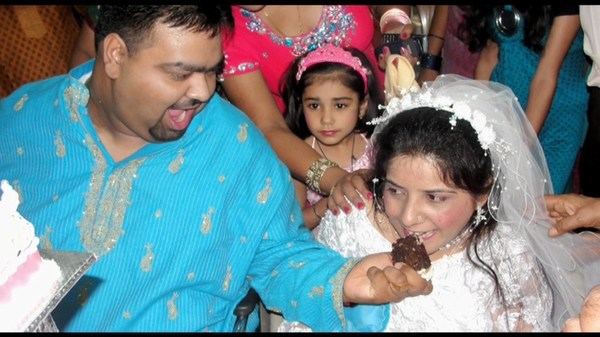 The second
story is about a young man Alok Sikka. Alok also has his crushes and dreams. He would like a girl
friend and a loving wife. And like all young men, he tries to weigh the pros and cons of getting married.
"Can I really look after a wife? What would it mean for me and my life to have this responsibility?" And what about
the desires he feels in his body?
The second
story is about a young man Alok Sikka. Alok also has his crushes and dreams. He would like a girl
friend and a loving wife. And like all young men, he tries to weigh the pros and cons of getting married.
"Can I really look after a wife? What would it mean for me and my life to have this responsibility?" And what about
the desires he feels in his body?
The third story is of Sujata Goenka. She would like you to think that she has resolved her dilemmas. "I never wanted marriage", she says. Even if she grew up in a traditional family, she has fought for her own spaces. I can party, I can drink and I have had sex, she says defiantly. Intimacy? Companionship? Some questions are left unanswered.
The fourth story is of Sam and Meenu. Their's is an inter-religious marriage. She was his junior in school and it was love at first sight for him. It took him some time to convince her that they could think of love and marriage. They are not sure if they can have a child, but they would like to try.
The last story is of Vipul, Sangeeta, their son and their dog. It is like any other family with its share of ups and downs. "I liked his honesty, he didn't try to hide anything", she says. "In school and in college, I tried not to show but inside me, I knew that I was different and with time it would have become worse", he says.
The five stories are connected by a sign-language interpretation that seems like a dance by Jyoti Gupta. She dances to the words of a poem that expresses the desire of love and longing. All the five stories are also connected by the different disabilities and the different barriers, inside themselves and outside in the world surrounding them, that all of them must grapple with constantly as part of their daily lives.
Comments
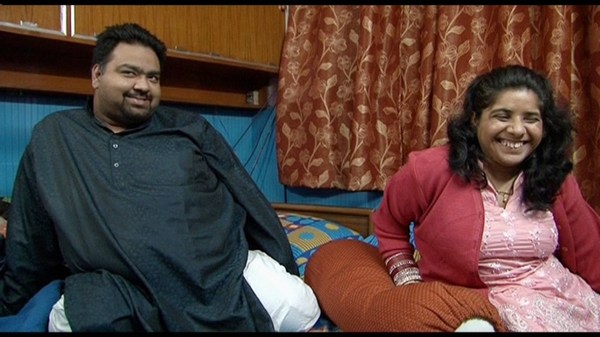 I
liked the rich details of everyday ordinary events of people's lives in the film. There are no
"experts" trying to explain anything. I think that our sexuality is not just about having sex, it is
about relationships - our relationship with our own bodies, with our families, with our friends and with
those whom we love. The film touches all those different parts of our sexuality.
I
liked the rich details of everyday ordinary events of people's lives in the film. There are no
"experts" trying to explain anything. I think that our sexuality is not just about having sex, it is
about relationships - our relationship with our own bodies, with our families, with our friends and with
those whom we love. The film touches all those different parts of our sexuality.
Thus, I appreciated that the film does not try to categorize or explain anything, rather it gently touches on the complexities of all these relationships, weaving a tapestry of emotions that are not always easy to express in words.
I felt that this film is like a storm, where we experience different emotions briefly and at the end, we may not really understand all those emotions. Yet they can set a deeper process of reflection in our minds, not just about sexuality in the lives of persons shown in the film, but also in our own lives, about our own fears and insecurities, about our own desires and needs, about our fragility and complexity as human beings.
Some of the issues that I was thinking about after watching the film were:
(1) How much of our lives are linked to and influenced by different media - magazines, films and TV: Almost all stories have some references to films and TV. Trisha had a crush on Vivek Oberoi, Alok had a crush on Amisha Patel, all of them watch the mushy dramas on the TV. Watching these scenes, I was asking myself, what kind of images and desires, these films and the TV programmes provoke in us?
During my research on disability and sexuality in Italy, many of the persons had said that TV and films present ideals of beauty and perfection, that make us feel ugly, inadequate and unattractive.
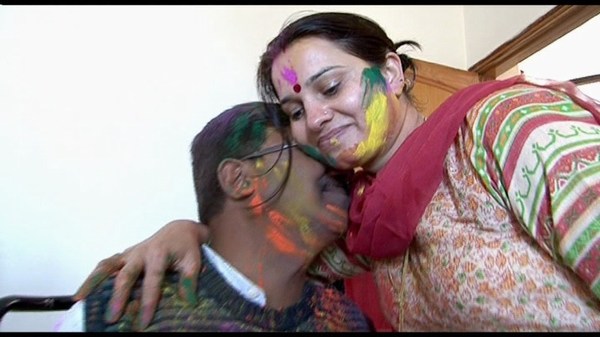 I think that
this area of relationship between our real lives and the stories of the lives projected in films and TV,
is an interesting and complex area of research. Except for a rare "Guzarish" or "Koshish", films do not talk about
persons with disabilities, and even less frequently as heroes and heroines.
I think that
this area of relationship between our real lives and the stories of the lives projected in films and TV,
is an interesting and complex area of research. Except for a rare "Guzarish" or "Koshish", films do not talk about
persons with disabilities, and even less frequently as heroes and heroines.
(2) Issues of intimacy and privacy: Even though issues of intimacy and privacy have their own challenges in traditional joint families, yet most of us now associate love and sexuality as a relationship between two persons. What would it mean if you need a third or fourth person to assist you during your intimacy?
Watching the two couples, I felt complex and confused emotions about this issue. Like when Sam, one of the guys in the film, talks about his honeymoon in Mumbai, where they were always accompanied by their two assistants and there was no privacy.
(3) Setting of the film: The film is about urban India, about persons who can afford to have personal assistants and access to services. In this sense, the film is more universal, it touches on issues that other persons in US or Europe or another part of the world face in similar ways.
After watching the film I was thinking if persons with disabilities living in a poor area or a rural area of India, with uneducated or less educated parents, would face these issues differently and in which ways?
(4) Model of sexuality: The film is only about heterosexual relationships and does not touch on more complex areas of alternate sexualities. That can be another big area of research and reflection.
Conclusions
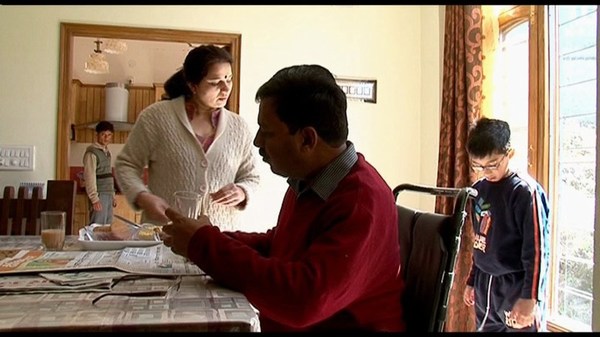 I think
that it is brave film that touches on uncharted areas in a sensitive way. It is true that
the film is about a subject about which I am passionate, and thus my opinion is biased. However, I do hope that the full
film can be subtitled so that it is accessible to deaf persons and to persons from other countries.
I think
that it is brave film that touches on uncharted areas in a sensitive way. It is true that
the film is about a subject about which I am passionate, and thus my opinion is biased. However, I do hope that the full
film can be subtitled so that it is accessible to deaf persons and to persons from other countries.
I also hope that it can be subtitled in other Indian languages and used for promoting reflection among organisations and federations of persons with disabilities. Government of India has signed the international convention on rights of persons with disabilities and is working on a new national law on disability. Thus it would be worthwhile for many more persons to watch this film, since sexuality is an integral part of human rights.
I would like to conclude with a few lines of the poem that Jyoti Gupta expresses with her sign-language gestures in the film:
I wish, I could
slide down the eyelashes
and turning into a drop dwell
in your eyes
or through your eyes
to your aching heart I go
in its recesses, as relief to reside
I wish
that you, as you shiver in the winter
of your solitary life
like a warm quilt, drape me over yourself
and, in giving your body my warmth, I melt.
